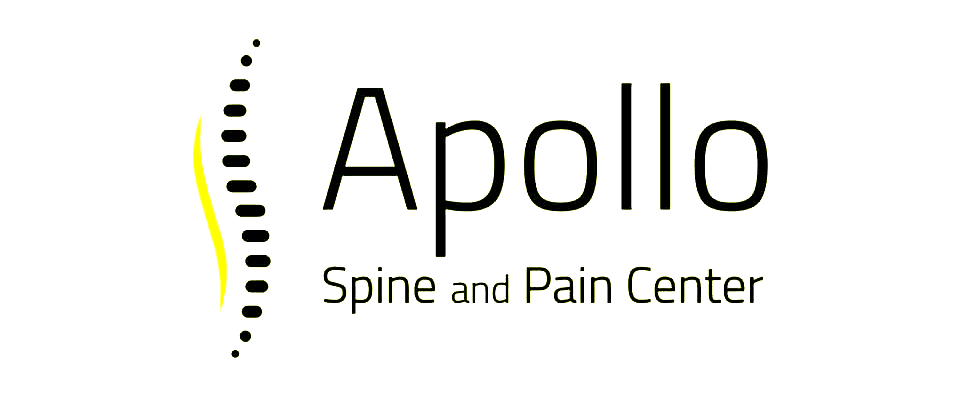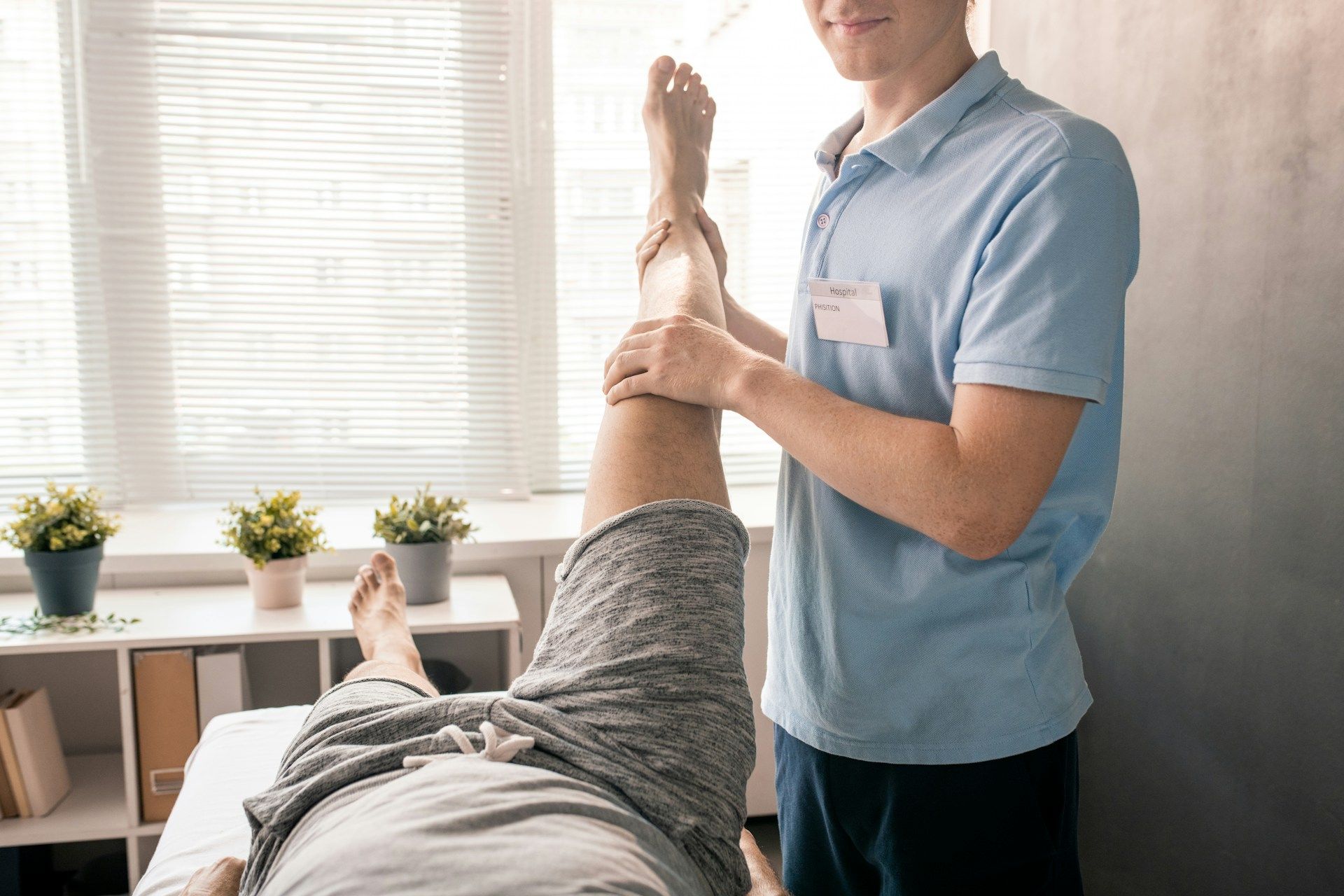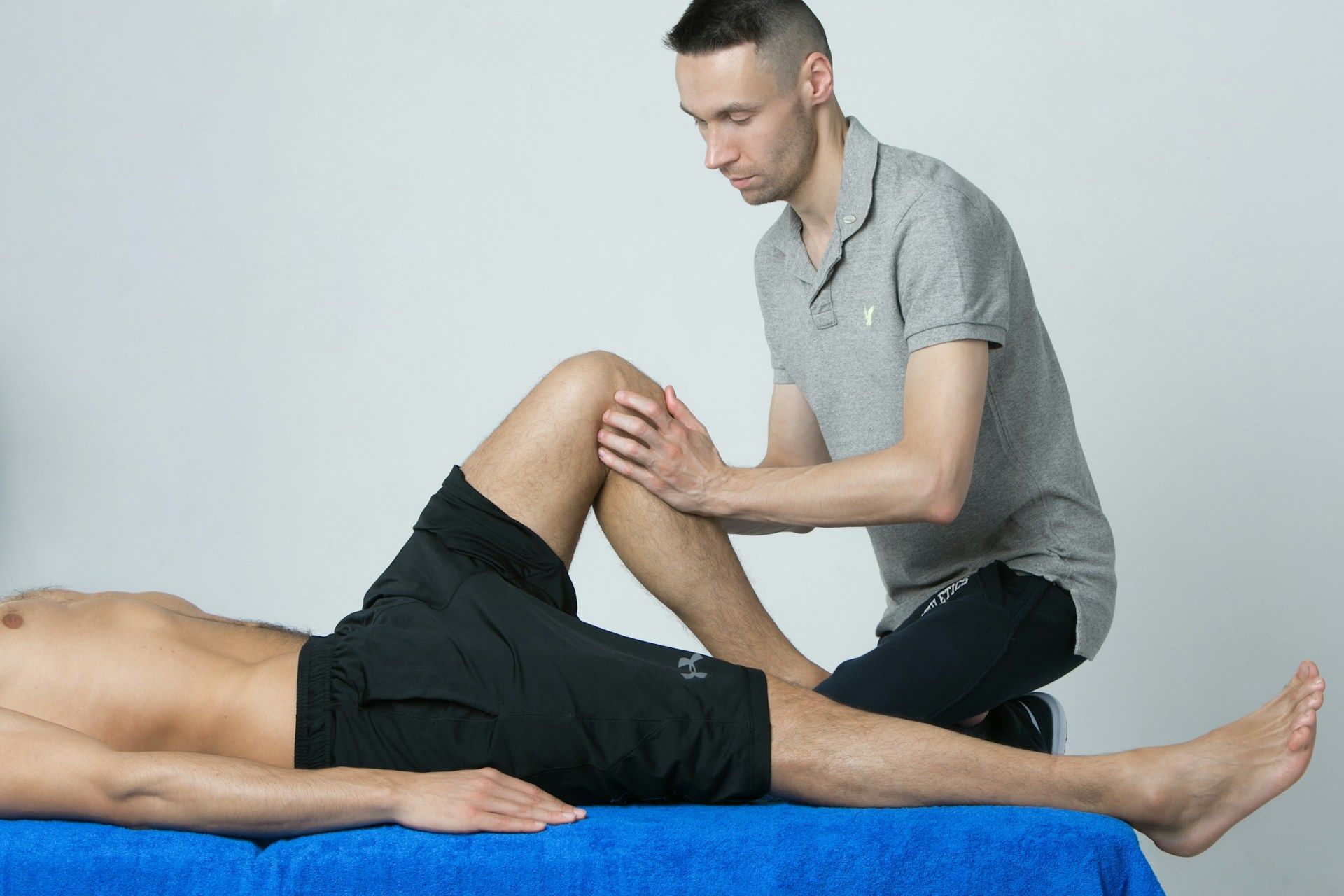Prevention & Recovery: Managing Workplace Injuries
Work-related injuries are a common concern in many industries, affecting both employees and employers. These injuries can range from minor discomfort to severe conditions that hamper productivity and well-being. Understanding the common types and causes of work-related injuries is crucial in developing strategies to prevent them.
Repetitive tasks, heavy lifting, and slip-and-fall accidents are frequent culprits of workplace injuries. Such incidents not only risk employee health but also disrupt workflow and increase costs for businesses. Employers who prioritize safety create a more productive and positive work environment.
Taking small steps towards prevention, like improving ergonomics and providing proper training, can make a big difference. By focusing on early intervention and maintaining a proactive approach, workplaces can significantly reduce the risk of injuries and promote a healthier work culture.
Common Types of Work-Related Injuries
Work-related injuries can occur in various forms, impacting all kinds of work environments from offices to construction sites. Understanding these injuries helps in addressing their prevention and management.
Typical injuries include strains and sprains from repetitive motions or lifting heavy objects, which are common in physical jobs. Lower back injuries often result from improper lifting techniques or overexertion, causing chronic pain that hinders daily tasks.
Slip-and-fall accidents also pose significant risks, regularly leading to fractures or head injuries. These accidents can happen due to wet floors, uneven surfaces, or poor lighting, making awareness and prevention strategies crucial.
The impact of these injuries is far-reaching. Employees can face not just physical pain but also emotional stress, leading to time off work. This disruption affects both the individual and the organization, reducing productivity and increasing healthcare costs.
By recognizing the common types of work-related injuries, companies can implement safer practices, creating a healthier workplace environment for everyone involved.
Identifying Symptoms and Risk Factors
Recognizing symptoms early plays a key role in preventing the escalation of work-related injuries. Common symptoms include persistent pain, swelling, and limited mobility in affected areas. Workers might notice tingling or numbness, often indicating nerve involvement. Fatigue and decreased performance can also be signs of underlying injuries.
Several risk factors can increase the likelihood of workplace injuries. Poor ergonomics, such as improper chair height or monitor placement, contribute significantly to repetitive strain injuries.
Workers who lack proper training on safe work practices are at a greater risk, as they may inadvertently adopt unsafe techniques. Additionally, high-stress environments can lead to rushed tasks, increasing the chance of accidents.
Implementing proactive measures is essential in mitigating these risks. Regular screenings and assessments can help identify potential hazards before they cause harm. Educating employees on proper ergonomic setups and safe work habits empowers them to protect themselves.
Encouraging regular breaks and promoting a culture of safety fosters an environment where employees feel motivated to prioritize their well-being.
Effective Non-Surgical Treatment Options
Managing work-related injuries effectively can often be achieved without the need for surgery. Non-surgical treatments focus on relieving pain and restoring function. Physical therapy plays a key role in this process.
It involves exercises designed to improve strength, flexibility, and mobility, which help in speeding up recovery and preventing future injuries. Physical therapists provide tailored programs that address specific injuries and their causes, ensuring a personalized approach to healing.
Pain management through medication is another crucial component. Over-the-counter pain relievers and anti-inflammatory drugs can reduce pain and swelling. In some cases, healthcare providers might prescribe stronger medications or muscle relaxants to manage severe pain more effectively.
Regenerative medicine, including treatments like PRP (Platelet-Rich Plasma) therapy, offers promising results for certain workplace injuries. This method uses a patient's own blood to promote healing in damaged tissues, potentially speeding up recovery and reducing pain.
Ergonomic adjustments in the workplace can significantly reduce the risk of further injury. These might include changing workstations, ensuring proper posture, or using equipment that better supports the body during tasks.
Making these changes creates a safer environment and minimizes the risk of injury recurrence.
Developing a Personalized Recovery and Prevention Plan
A personalized recovery plan is crucial for effectively managing work-related injuries. It involves several strategic steps tailored to the individual's specific needs and the nature of their injury. First, a comprehensive assessment is conducted to understand the extent of the injury and any underlying causes. This assessment guides the creation of a recovery plan that outlines the appropriate treatment options and rehabilitation exercises.
Educational programs focusing on injury prevention play a vital role in ensuring long-term health and safety. These programs teach employees about proper body mechanics, safe lifting techniques, and recognizing early signs of strain. Knowledge gained from these programs empowers employees to take proactive steps in preventing injuries.
Monitoring progress is an essential part of the recovery process. Regular check-ins with healthcare professionals ensure that the treatment plan remains effective and adjustments are made when necessary. Tracking recovery progress also provides motivation and a sense of achievement, encouraging adherence to the recovery plan.
Employers can foster a culture of safety by implementing continual safety training and revising prevention strategies based on feedback and incident reports. This proactive approach creates a safer workplace, reducing downtime and enhancing employee well-being.
Conclusion
Work-related injuries can have a significant impact on employees’ lives and the overall productivity of an organization. Addressing these injuries with effective management strategies is crucial for ensuring a safe and healthy working environment.
At Apollo Spine and Pain Center, we understand the importance of managing work-related injuries effectively. If you are experiencing discomfort or pain from your work environment, reach out to us for our pain management intervention in Cumming, GA.
Our team of specialists is committed to helping you recover and regain your quality of life through tailored treatment plans and supportive care.












